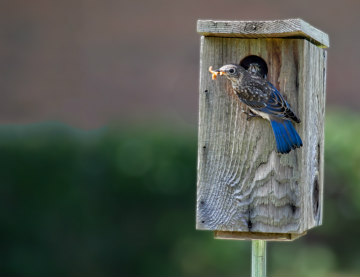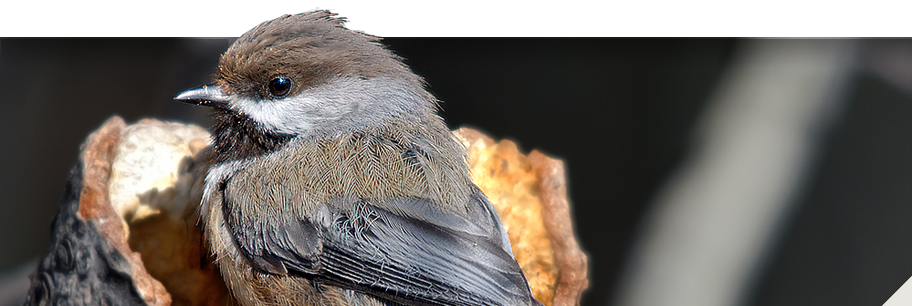 Photo ©
Glenda Simmons
Photo ©
Glenda Simmons
Helping Behavior in Eastern Bluebirds
In contrast to Western Bluebirds, Eastern Bluebirds rarely have helpers at the nest. However, this breeding season NestWatch received two independent, confirmed reports of juvenile Eastern Bluebirds feeding their (presumed) younger siblings.
Glenda Simmons of Tallahassee, Florida, submitted a photo of a juvenile feeding its younger sibling. Glenda observed the behavior for six days and noted, “The first time I witnessed this I thought, perhaps it was a one-time event, since the mealworms happened to be close by. But then I saw the juvenile fly to the ground, where he plucked a spider from the grass and took it back to feed the nestlings inside the box.”
The second report came from Wild Birds Unlimited in Yorktown, Virginia. The store livestreams a nest cam and reported two juvenile Eastern Bluebirds feeding their younger siblings on a regular basis. You can see from their video that the juveniles aren’t just entering the nest to steal food from the nestlings, like this cunning juvenile Violet-green Swallow.
Research on helpers in breeding populations of Eastern Bluebirds is sparse. Anecdotal reports suggest that juveniles may be more of a hindrance than a help. Juvenile helpers can interfere with adults feeding the nestlings and they often do not adequately “prepare” the foods, i.e., some insects are still wriggling upon delivery!
Have you observed Eastern Bluebird helpers? Be sure to share your stories and images with us; we’d love to learn more about this phenomenon.
 Photo ©
Photo ©